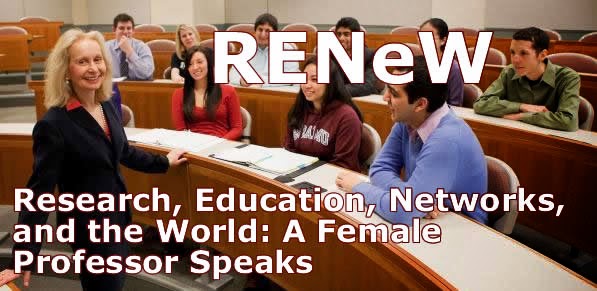 The other day I received my copy of the Handbook of Computational Econometrics.
The other day I received my copy of the Handbook of Computational Econometrics.I had contributed an invited chapter on Network Economics and, hence, received my complimentary copy from the publisher, John Wiley & Sons. The Handbook was edited by David Belsley and Erricos Kontoghiorghes. Professor Belsley is a Professor Emeritus of Boston College and Professor Kontoghiorghes is a Professor at the University of Cyprus and Queen Mary, University of London, in England. The volume is stunning and I enjoyed writing my invited chapter on one of my favorite themes.
In fact, Network Economics is also the title of the first book that I authored and that also had a second and revised edition. It was the first volume in the series Advances in Computational Economics that Professor Hans Amman and I edited at that time for Kluwer Academic Publishers (since bought out by Springer). I wrote my Network Economics book while on sabbatical at Brown University in the Division of Applied Mathematics (nothing like coming back to your alma mater as a Full Professor and seeing that many of one's professors that one had as an undergrad still looked the same and had many of the same habits, from where they went to lunch, to whom they ate lunch with, etc.). I lived at Wayland Manor on Wayland Square that 1992 year on the Eastside of Providence, and would get up before the sun rose to write my book. It was a magical time!
Computational methods (also known as algorithms) are playing an increasingly important role in answering difficult questions in numerous disciplines, including economics. In fact, The Economist, in its July 18-24, 2009, issue (which I have blogged on earlier), which was on Modern Economic Theory -- Where it Went Wrong -- and How the Crisis is Changing It, stated on page 67 that economics requires a revolution in technique and that solving models by hand is insufficient. In fact, research in Computational Economics, which The Economist seemed to, surprisingly, not be aware of, harnesses not only sophisticated mathematical models but also algorithms and their effective implementations to capture the full complexity of economic interactions in economic systems. The Society of Computational Economics was launched over a decade ago and we have an annual conference, a journal, and I have the honor of serving on its Advisory Council for a three year term. The article also highlighted the failure to include banks and intermediaries in economic models (another oversight and not correct statement, and I wrote a letter to the editor making the corrections). In fact, I have not only supervised several doctoral dissertations on this theme but my Network Economics book, my Financial Networks book with Dr. Stavros Siokos, a star in financial practice, and even my Fragile Networks book with Patrick Qiang, ALL have financial network models that include financial intermediaries such as banks!
It is time for journalists to become aware of the literature as well as for academicians and practitioners! To ignore the state-of-the-art in model and algorithm development is to move from one crisis to another, blindly!!! It is also time for economists and operations researchers/management scientists to work more closely together, as was the case during the founding of the field of operations research!


































